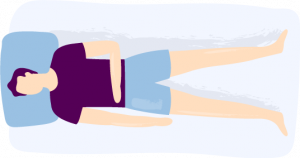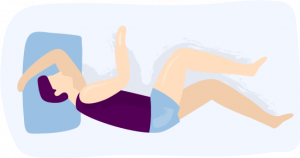Mattress Firmness Guide
How firm should the mattress be?
Last Updated on 30th May 2021 by Amanda Larsson
Mattress firmness determines how hard or soft a mattress will feel when you lie down on the bed. The firmness of the mattress is a huge factor in the quality of your sleep. This is because different firmness is suitable for different individuals. Mattress companies use a scale of 1-10 to determine the firmness of the mattress.

What is the ideal firmness?
Choosing the right mattress firmness boils down to some basic factors. First of all, it depends on your preference that is whether you like sleeping on a soft or firm mattress. Second, your partners preference and mobility will impact your decision. Finally, you and your partners sleeping positions will determine the optimum firmness.
Mattress Firmness Levels
Mattress companies usually have three firmness options to select from when choosing a particular mattress. These are outlined below:
Soft
Soft mattresses easily allow the body to sink in. These mattresses have softer top layers which hug the body. Therefore you will feel like sleeping in the mattress rather than ‘on top’ of the mattress.
These mattresses are suitable for lighter individuals. Heavier individuals will feel sunk into the mattress and trap heat and it is not recommended for them.
Soft mattresses are preferred for side sleepers as they don’t feel much pressure from the mattress. Stomach sleepers will not benefit from these mattresses as the firmness is not able to support their body properly. These are also recommended for back sleepers with back pain or spine issues.
Soft mattresses typically get worn out quickly due to the less dense foam used on the top layers of the mattress.
Medium Firm
Medium Firm mattresses are firmer than soft mattresses but not hard like firm mattresses. Medium Firm mattresses provide the optimum support and comfort level as they are not very soft or very hard. These are the popular ones as they are generally suited to most individuals.
Medium Firm mattresses are suitable for all types of sleeping positions. They are preferred for average weight individuals.
Firm
Firm mattress are not sensitive to pressure and do not allow sinking into the mattress. With these mattresses you will feel like sleeping ‘on top’ of the mattress rather than sleeping in.
Firm mattresses are preferred for heavier individuals as they will not allow the body to sink in easily.
Firm mattresses are suitable for stomach sleepers.
Which firmness is best for my sleeping position?
Different firmness is suitable for different sleeping positions as each sleeping position has different pressure points on the mattress.
Back Sleeper

The main pressure points for back sleepers are the shoulders and hips so the mattress be able to support both pressure points without bending too much and creating an arch. A medium firm mattress will provide even support throughout the body is therefore recommended for back sleepers.
To provide the best support, light weight sleepers should look for softer firmness. Medium weight individuals should favor medium to medium firm mattresses and heavy weight individuals should go for firmer options.
Side Sleeper

Side sleepers need a mattress that will relieve their pressure in the hips and shoulders and provide balanced support throughout the body. If the pressure is not relieved properly side sleepers will suffer from shoulder and back pain.
Softer Mattresses are preferred for side sleepers as the soft mattress will contour to support the pressure of the hips and shoulders.
Stomach Sleeper

Stomach sleepers are like black sleepers in the sense that their spine is in a neutral position and the body lies flat on the mattress. So for stomach sleepers the mattress should be firm enough to be able to provide an even support throughout the body and should not allow the body to sink too deeply on any side.
Hence, medium-soft to medium firm mattresses are suitable for stomach sleepers.
Note: This article provides information extensively reviewed and researched by the author. However, this article is not a substitute for advice from a professional doctor.